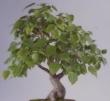
I need to tell you this story so that you can fully appreciate the context and full range of emotive substance of this poem. It was some thirty years back that my friend Arvind Gupta, a literary freak, recited this poem to me. Those were the days of seventies, of meaningless angst. Almost every other intellectual was sort of a comrade. I was actually a 'be-pendii ka lotaa', a guy having no allegiance to any particular philosophy and would sit in all sorts of mehfils be a comrade expounding theory of Marx or RSS Pracharak singing 'apni dhafli apna raag' or a congress guy sinking into Gandhian nostalgia. All of them had one common feature, they chain smoked and gorged tea after tea while pouring wisdom at faithfuls. Arvind too was a mild (confused) commie, so one day in the hostel canteen we were having discussion over Marx over cups of tea, I mostly disagreeing with him. We then switched conversation to literature. I had kind of ambivalent attitude towards literature, I liked fiction but poetry wasn't my cup of tea. While talking about modern poetry or non-poetry (a-kavitaa) as I described it; in a kind of spoof I told Arvind this 'nai kavita' stuff is all 'bakwaas' and I can do much better job than these jerks and as an example uttered these lines:
Zindagi aik mariyal kutta hai,
Jo phati nekar pahne,
MuNH meN bujhi beeRii lagaye,
Seedhi saRak men bhi
Seedha nahi chal paataa.
Arvind, to my amazement quite liked these lines, which I didn't think was poetry at all but who am I to discourage any one appreciating my creative work! So in a reciprocal arrangement he recited this poem to me. And thereafter every time we met, I would recite my 'mariyal kutta' and he would recite this poem softy in his inimitable style. He told me that it was published in 'Parag' a children's magazine (now defunct). He had forgotten the poet's name. The poem is in twilight zone of Urdu-Hindi, perhaps more Hindi than Urdu but you will have no difficulty in understanding it.
Kal woh jo,
Neelee aNkhoNwaalaa baadal,
Ghoom rahaa thaa
Aasmaan men bastaa lekar
Kabhi idhar, kabhi udhar,
Aur hawaa ki uNgli pakRe,
Joote muNh se khol rahaa thaa
Peepal ke pattoN se jaane
Kis bhaashaa men bol rahaa thaa
Us se kahnaa kal phir aaye
Mujhe chaaNv ke geet sunaaye
Mai use lollipop duuNgaa!
Even though this poem is meant for children, you just cannot remain untouched by the soft magic it weaves around you to yearn for that illusive childhood and so effectively brings out the child in you to the surface. It is now more than thirty years when I first heard this poem but I haven't forgotten a single word of this mesmerizing poem.
